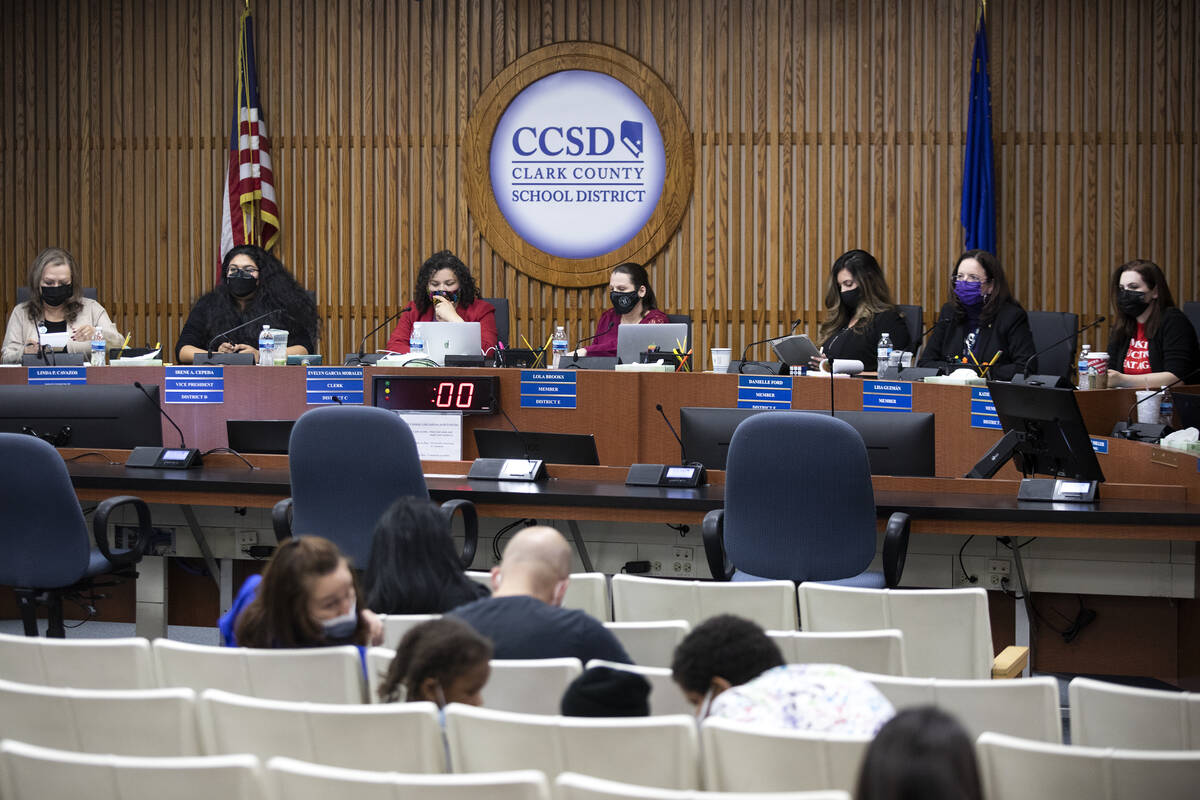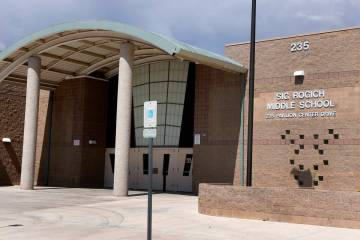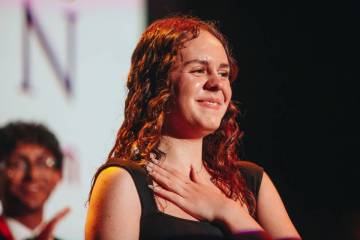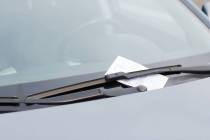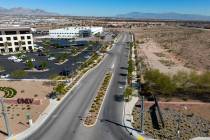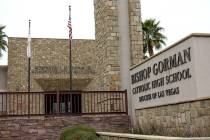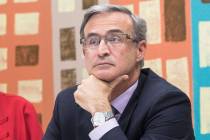School Board considers limits for public comments
The Clark County School Board is considering policy changes that outline rules for public comment periods and possible consequences for those who don’t comply.
Board officers discussed draft changes Wednesday. An edited working draft will come back to trustees at a work session in July.
The move comes after contentious school board meetings during the COVID-19 pandemic — particularly, in the fall, when public comment periods routinely stretched for hours. It’s a trend a number of school boards nationwide have experienced.
It has been a tumultuous two years of public comment and “very divisive topics” have been covered, board President Irene Cepeda said during a Wednesday meeting.
There have also been specific attacks on students, board members and members of the public, she said.
That spurred conversations, which began late last year, on possible revisions to the public comment policy that was last updated in 2017, Cepeda said.
One example of a contentious meeting: In September 2021, the board heard more than five hours of public comments — the vast majority of which were opposed to a COVID-19 vaccination mandate.
Some public commenters yelled at trustees before being escorted out by police. Trustees also called a five-minute break to decide whether to clear the meeting room, but ended up proceeding with business.
Public comment periods from January onward ranged from about 50 minutes to nearly 2½ hours, according to online meeting materials. In some cases, that took up about half the meeting.
Reactions
Vicki Kreidel, an elementary school teacher and president of the National Education Association of Southern Nevada, attends nearly every school board meeting and is a frequent public commenter.
The most prevalent thing she has noticed? “The meetings are no longer safe,” she told the Review-Journal.
Some people target educators who testify, Kreidel said. And recently, a group of people who were trespassed were outside on a sidewalk and had megaphones trying to engage attendees as they walked in and out of the meeting, she said.
Kreidel said she has been taunted by members of the audience while she was giving a public comment, but doesn’t engage with them.
If proposed policy changes lead to improved safety and security for those in the meeting room, it would be a positive and needed first step, Kreidel said.
“I really do hope what they’re doing is going to increase the safety,” she said. “That room used to be a safe space.”
Parent Anna Binder, who’s also a regular public commenter, told board officers Wednesday there will be pushback on the changes because many in the community don’t feel they have access. She said she also wants to encourage the board to hold interactive meetings with the public.
It sounds like a lot of the proposed changes “are really just limiting the few people in the community that show up,” she said.
Binder told the Review-Journal she knows there will be many changes to the working draft by the time it’s presented at the July work session.
As for the atmosphere at board meetings, a lot happens in the audience that trustees don’t hear, Binder said, adding it was particularly problematic when everyone was wearing face masks because you couldn’t see who was talking.
People who attend board meetings shouldn’t have to take verbal abuse, Binder said. Those seeking their five minutes of fame are drawing attention away from important issues, she said.
What’s proposed
Draft policy revisions include some new additions, including a statement that the board “encourages and values public input.”
“To create a safe and welcoming environment at board meetings, conductive for board business and public comment, everyone is expected to be respectful and civil,” according to the draft.
One of the major proposed changes is a new section about meeting decorum. It describes a school board meeting as a “business meeting” and “not an open forum.”
Rules, if approved, would include “no heckling of speakers or shouting from the audience,” a limit on the size of signs attendees can bring, no personal cell phone calls and a requirement that attendees who leave meeting room do so quietly.
“Failure to follow these rules by an individual or group is grounds for terminating a speaker’s comment period or an attendee being asked to leave the meeting,” according to the proposed revision.
Guidelines for public comments include bans on “racial slurs, personal insults, threats, or other inappropriate language,” a requirement that speakers must address the whole board and not specific individuals, that they must stay on the topic they signed up to speak about, that only one public comment on non-agenda items is allowed per person, and that commenters can’t sign up for another person or yield their time to someone else.
The revisions outline consequences for disorderly conduct by speakers or members of the public, including removal from the meeting and/or trespassing.
Other proposed changes limit the first public comment period to 20 minutes. On some occasions, the board has opted to extend that.
It also calls for reducing the amount of time each person can speak on an action item to two minutes, down from three minutes currently.
Those speaking on two or more consent agenda items would have a total of up to five minutes, according to the proposal. The current policy allows up to 10 minutes for someone commenting on four or more consent items.
Another change, if approved: Once an agenda is posted, those who want to sign up in advance to comment must do so earlier — by 8 p.m. the day before the meeting instead of the current cutoff of three hours prior to the meeting and only during regular business hours.
Speakers can also sign up at the meeting just before it begins, but policy revisions propose that public comment cards wouldn’t be accepted after the board president calls an agenda item.
Contact Julie Wootton-Greener at jgreener@reviewjournal.com or 702-387-2921. Follow @julieswootton on Twitter.



